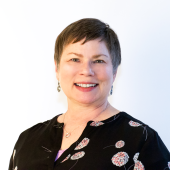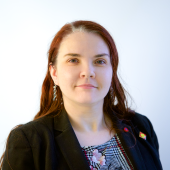
DNA in Practice: Leveraging DNA Results in Your Family History Research
DNA testing has been a transformative tool for genealogists—allowing you to confirm hypotheses, meet distant cousins, and solve some family mysteries. Depending on your goal, however, it can be difficult to determine which test or tests to utilize, how to interpret your results, understand how the results relate to your paper research, and how to keep your matches and research organized. Using several real-world case studies, this online course will demonstrate how to leverage autosomal, mitochondrial, and Y-DNA results effectively using a variety of tools and organizational methods.
January 4
Class 1: How to Plan a DNA Research Project
This first class will go over the essential steps in planning a DNA research project: setting a reasonable goal, determining which tests will help you, laying out a plan of action, and tips for organizing your results. In this session, our instructor will also review the basics of DNA and demonstrate some go-to tools for interpreting your results.
January 11
Class 2: Uncovering Ancestral Origins
Ethnicity estimates are just a small part of your DNA results—and they aren’t always accurate or as precise as you’d like them to be. This class will discuss how to triangulate ancestral origins by reviewing your matches carefully and by combing your DNA results with traditional genealogical research.
January 18
Class 3: Determining Recent Parentage
DNA testing can uncover unexpected results. Be it in cases of adoption, misattributed parentage, or non-paternity events, this class session will demonstrate how to connect with biological family and how to identify the father of a recent male ancestor or the mother of a recent female ancestor within five generations.
January 25
Class 4: Confirming Parentage of Distant Generations
There are instances when you can identify parentage five to fifteen generations back using DNA testing. This final class will discuss how testing genetic hypotheses can lead you to determining the mother of a historic female ancestor and the father of a historic male ancestor.



